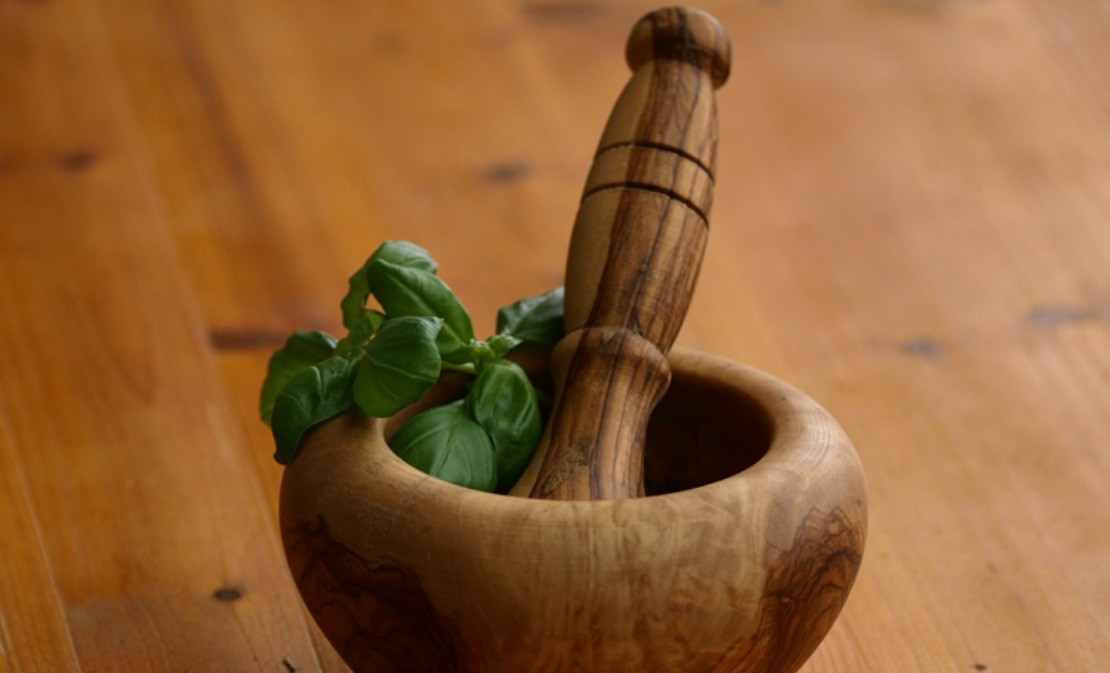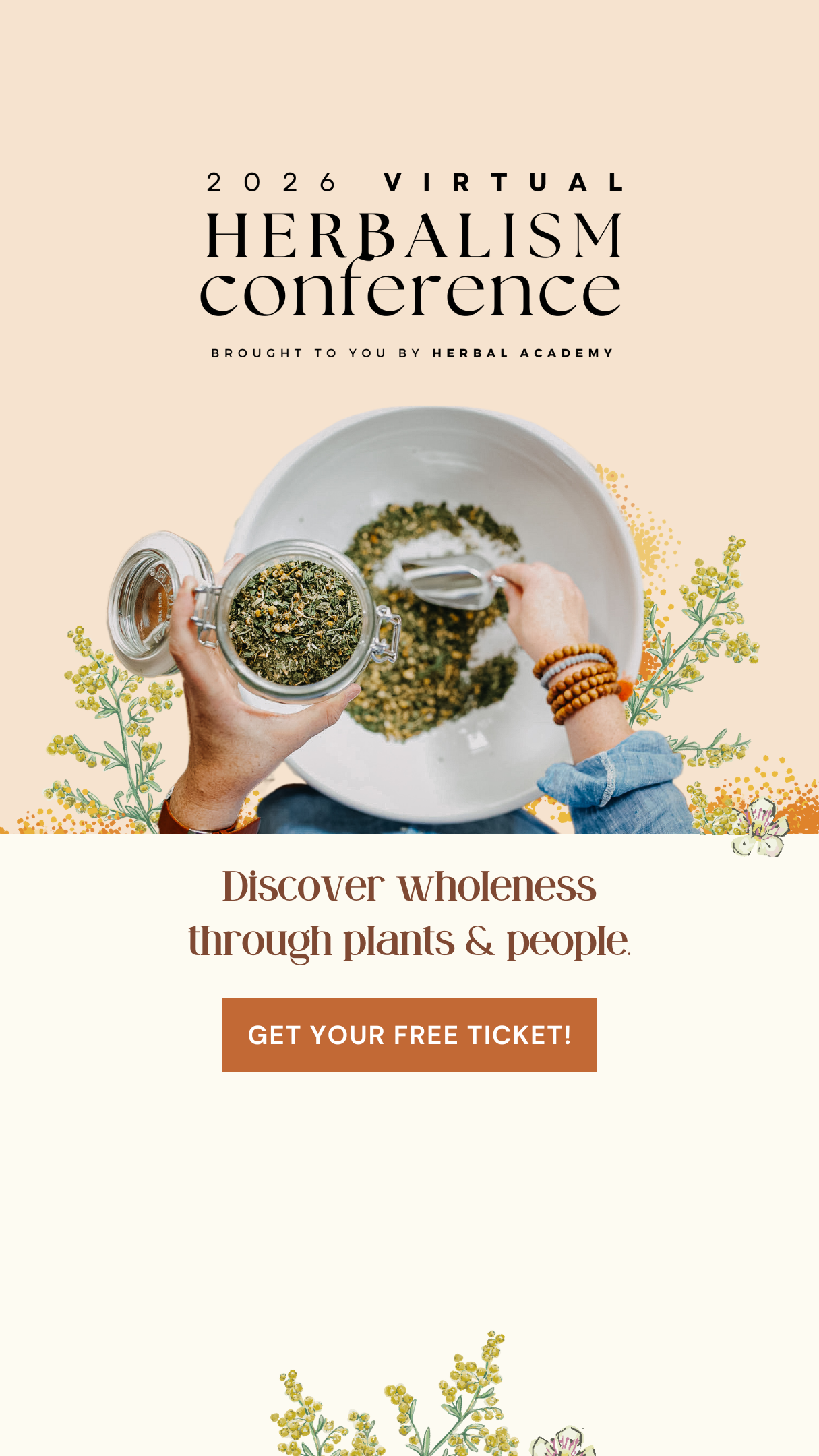
How Much Do You Know About Popular Herbs?
Almost everyone has heard of them, the popular herbs promoted in mainstream press and hyped by marketers. But every “herb du jour” has a fascinating story that just may surprise you!
If you’re interested in learning more than just hype, rooting and sprouting herbalists herbalists can start their journey in the Online Introductory Herbal Course, while budding and blossoming herbalists can join us in the Online Intermediate Herbal Course. We offer quality lessons from real herbalists and practitioners, discussions of anatomy and physiology, and discuss the traditional use of herbs along with modern science and research.
Take the Popular Herbs Quiz!
How much do you really know about “popular” herbs? Take this quiz to test your knowledge!

A popular herb used for depression, St. John’s wort (Hypericum perforatum) is named after John the Baptist because the plant blooms on his designated birthday, June 24.

The species name of St. John’s wort, perforatum, refers to what feature of the plant?

Which plant native to Midwestern North America was used by indigenous cultures as a treatment for infections, cold symptoms, toothaches, and inflammation?

Also known as “maidenhair tree,” this is the world’s oldest living tree species and is used for cerebral vascular insufficiency, among other things:

Which popular herb for insomnia is said to have played a role in the legend of the Pied Piper?

The berries of this plant, now promoted as a remedy for prostate problems, were once a staple food of indigenous Americans and used medicinally for stomach problems, dysentery, and as a sexual tonic.

The oil of this herb has undergone numerous clinical studies for irritable bowel syndrome and indigestion:

This soothing herb’s name is derived from the Greek for “ground apple,” alluding to its apple-like scent.
Let’s Review the Quiz!
Question:
A popular herb used for depression, St. John’s wort (Hypericum perforatum) is named after John the Baptist because the plant blooms on his designated birthday, June 24.
Correct Answer: True
Additional Information: When bruised, St. John’s wort releases a blood-red oil from glands in its petals. The ancients believed that a plant that “bled” possessed great powers, and during the rise of Christianity St. John’s wort became associated with John the Baptist. The flowers were said to bloom on his birthday, June 24, and to bleed on August 29, the day of his beheading. (from Guide to Medicinal Herbs by Rebecca Johnson and Steven Foster, 2010)
Question:
The species name of St. John’s wort, perforatum, refers to what feature of the plant?
Correct Answer: Tiny oil glands in its leaves
Additional Information: Pick a St. John’s wort leaf and hold it up to the light and you’ll see tiny perforations in the leaves which are oil glands. It is from these leaves and oil glands in the petals from which St. John’s medicinal oil is released. The oil is anti-inflammatory and pain-relieving for muscle aches and swollen joints, and is healing to pain and inflammation in nerves. Read more about St. John’s wort here.
Question:
Which plant native to Midwestern North America was used by indigenous cultures as a treatment for infections, cold symptoms, toothaches, and inflammation?
Correct Answer: Echinacea
Additional Information: As well as the aforementioned uses, echinacea was also used by indigenous Native Americans to treat snake bites, sore throats, sore and painful necks, and burns, among many other uses.
Question:
Also known as “maidenhair tree,” this is the world’s oldest living tree species and is used for cerebral vascular insufficiency, among other things:
Correct Answer: Ginkgo
Additional Information: Ginkgo trees are commonly called maidenhair trees because their fan-shaped leaves resemble the shape of maidenhair ferns leaves. Ginkgo improves circulation to the brain, and in fact is one of the best herbs for promoting blood flow and oxygenation through the body. The increase in the availability of oxygen to the brain improves brain function and memory in folks with dementia and Alzheimer’s disease.
Question:
Which popular herb for insomnia is said to have played a role in the legend of the Pied Piper?
Correct Answer: Valerian
Additional Information: Legend has it that the Pied Piper filled his pockets with valerian to lure the plague-carrying rats out of Hamelin, as the smell attracts them. Cats are known to love the smell as well. As a modern medicinal, valerian is now known to calm anxious and restless minds to support healthy sleep and relaxation. Learn more about valerian here.
Question:
The berries of this plant, now promoted as a remedy for prostate problems, were once a staple food of indigenous Americans and used medicinally for stomach problems, dysentery, and as a sexual tonic.
Correct Answer: Saw palmetto
Additional Information: Saw palmetto is a palm native to the southeastern United States. The berries have a sweet aroma and were used as a food source by indigenous Americans and Early American settlers. It is now used as a remedy for men with prostate enlargement, or benign prostate hyperplasia (BPH), which is common in men over 40 years of age, and is also used to support urinary tract function. Learn more about saw palmetto for BPH here.
Question:
The oil of this herb has undergone numerous clinical studies for irritable bowel syndrome and indigestion:
Correct Answer: Peppermint
Additional Information: In “Peppermint Oil in Irritable Bowel Syndrome”, Grigoleit et al. (2005) found that in eight out of 12 placebo-controlled studies, patients saw relief from using enteric-coated peppermint essential oil capsules as a smooth muscle relaxant for irritable bowel syndrome (IBS), and concluded that peppermint oil “may be the drug of first choice in IBS patients with non-serious constipation or diarrhea to alleviate general symptoms and to improve quality of life.” Learn more about peppermint and other mint family plants here.
Question:
This soothing herb’s name is derived from the Greek for “ground apple,” alluding to its apple-like scent.
Correct Answer: Chamomile
Additional Information: With its sweet scent, chamomile has been cherished for centuries as a tea and strewing herb. It is used for stomach upset, relaxation and sleep, conjunctivitis, and adding blonde highlights to hair. Read more about using chamomile to tame stress and anxiety here and for digestive upset here.
Score your quiz!
0 to 1 correct answers? You are a Rooting Herbalist, your path is just beginning, welcome!
You are just starting out and have taken only a couple steps into your herbal journey. You have used a few herbs like basil and cilantro, adding these culinary herbs to your pasta sauce or salsa. Who knew they can also be used medicinally! Herbalism is a new word in you dictionary, but you are interested in learning more about it and what it means!
1 to 3 correct answers? You are a Sprouting Herbalist!
You are curious about herbs and how to use them for your health, and you often wonder about the plants and weeds that grow in your backyard, but you are unsure how to use them for yourself and family. While you may have tried making your own herbal teas and homemade lotions, you don’t fully understand dosage and formulation. Herbalism might be a new word in your dictionary, but you are definitely eager to jump in and discover this “back to the roots” way of life!
4 to 7 correct answers? You are a Budding Herbalist!
You are truly passionate about herbs and eager to learn more! You have a good understanding of herbs and how to use them for yourself and others. You’ve been studying herbs on your own for some time and may have taken some classes or courses. Your passion rubs off on your family and friends. Herbalism is not just a fad for you, it’s a lifestyle! And your journey is far from over… there’s always more to learn!
8 correct answers? You are a Blossoming Herbalist!
You have a good grasp of herbs and how to use them as medicine. Your library is always expanding with new reading materials and you have been studying herbs since you can remember. Many of your friends and family come to you with questions about their health and wellness, and you are proud to be able to help them. Your passion for herbalism is ever growing andl like so many others with years of experience and education, you are mature enough to recognize that herbalism is a lifelong pursuit… so let the adventure continue!
If you’re interested in learning more about herbalism, rooting and sprouting herbalists can join us in the Online Introductory Herbal Course, while budding and blossoming herbalists can dive into the Online Intermediate Herbal Course.









